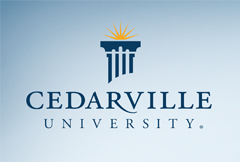Keywords
Kant, Kantian ethics, ethics, euthanasia, dementia
Abstract
Many believe that Immanuel Kant would oppose suicide in every circumstance. However, the intricacies of Kantian ethics may lead to the surprising conclusion that some individuals have the moral obligation to take their own lives. In this paper, I will employ Kantian reasoning to argue that patients approaching extreme dementia have the moral obligation to commit suicide before they lose their rationality and personhood. I will then argue that logically, it follows that physicians should administer euthanasia to patients with severe dementia who have lost their ability to freely choose suicide.
Editor's Note
Every year, each student in bioethics classes at Cedarville University must write at least one paper endorsing a position with which the student does not personally agree. This difficult assignment is a way to better understand a variety of viewpoints, and helps the student to develop a sense of respect for the moral integrity of others. This paper is an excellent example: it represents a position that is actually contrary to the author’s personal view and that of his professor.
DOI
10.15385/jce.2012.12.1.1
Recommended Citation
Beckler, Joshua
(2012)
"Kantian Ethics: A Support for Euthanasia with Extreme Dementia,"
CedarEthics: A Journal of Critical Thinking in Bioethics: Vol. 12:
No.
1, Article 1.
DOI: 10.15385/jce.2012.12.1.1
Available at:
https://digitalcommons.cedarville.edu/cedarethics/vol12/iss1/1
Creative Commons License

This work is licensed under a Creative Commons Attribution-Noncommercial-No Derivative Works 3.0 License.
Disclaimer
The CedarCommons repository provides a publication platform for fully open access journals, which means that all articles are available on the Internet to all users immediately upon publication. However, the opinions and sentiments expressed by the authors of articles published in our journals do not necessarily indicate the endorsement or reflect the views of Digital Services, the Centennial Library, or Cedarville University and its employees. The authors are solely responsible for the content of their work. Please address questions to the Digital Services staff.
Copyright
© 2012 Joshua Beckler. All rights reserved.
